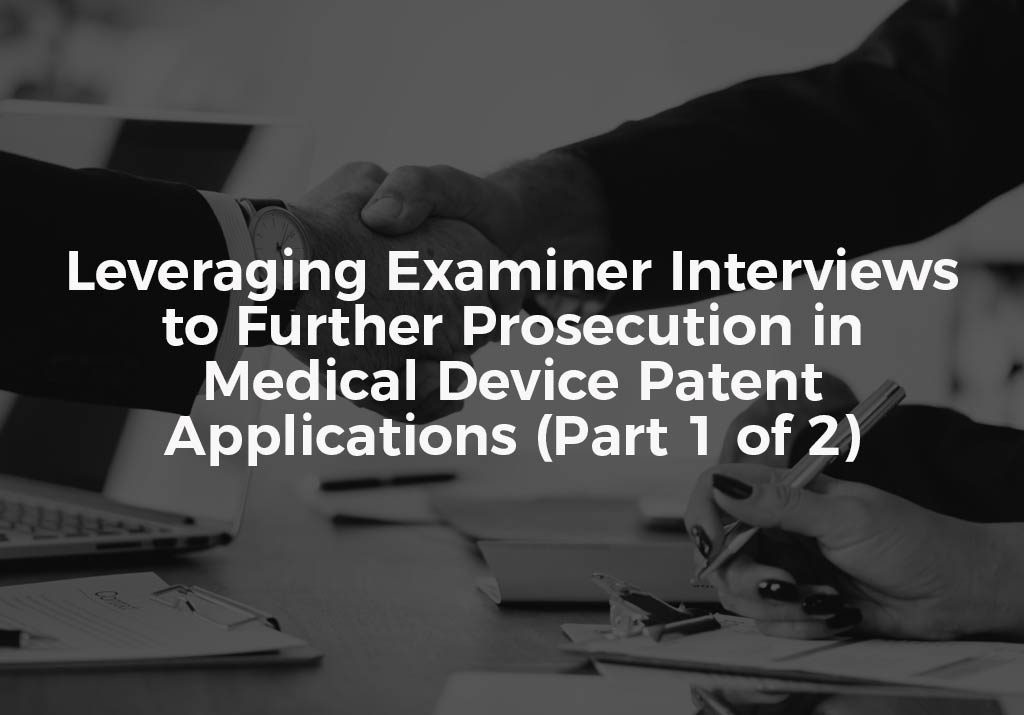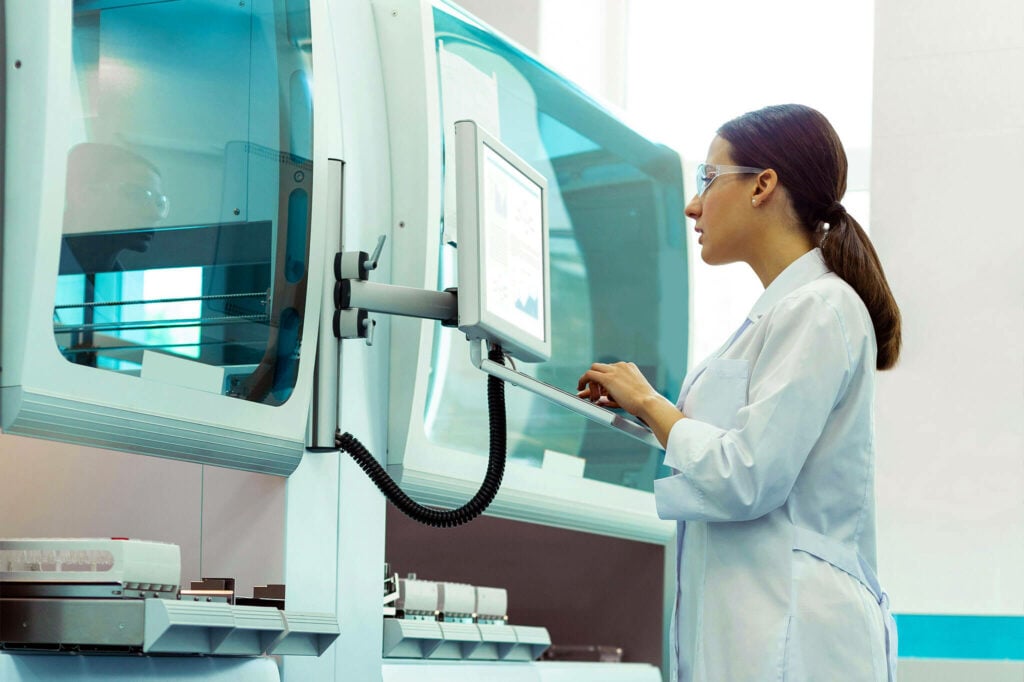One way that patent applicants and patent examiners can communicate about the prosecution of a medical device patent application is by conducting an interview with the examiner. Patent examiner interviews are common practice and are encouraged by the US Patent & Trademark Office (USPTO). According to statistics, over 225,000 interviews were conducted with patent examiners in 2016. Of those about 220,000 were phone interviews and another 10,000 or so were done via video-conferences or face-to-face at the USPTO.
Interviews can be requested at any point in the prosecution of the patent. Most requests come after the first Office Action during prosecution as it is often a good time to request the interview. However, every case is unique and the decision whether to request an interview after the first Office Action depends largely on the nature of the rejection(s) contained in the first Office Action.
Sometimes there are better ways to respond to a given rejection than to request an interview. If, for example, the rejection is based on prior art, then maybe a claim amendment is a better way to respond. Likewise, depending on the invention and the rejection(s), maybe argumentation and explanation in the Response will be sufficient to move prosecution forward. Under either scenario, the examiner interview can be saved for a later point in the prosecution when it might have more impact.
Advantages of Examiner Interviews in Medical Device Patent Applications
There are many advantages of conducting an examiner interview. The first is increasing the chances of success. This is done by having an opportunity to educate the examiner and by, hopefully, reaching an agreement on patentability during the interview. Second, an interview speeds up the prosecution of your application because it is clearer to both you and the examiner what the invention is, what the most relevant prior art is, and what the distinctions are between your invention and the prior art.
In addition, the USPTO’s analysis suggests that interviews generate better patents — that is, patents that are better crafted when claims are better described and where the patent can more easily withstand later federal court or post-allowance challenges. Often the key to getting a patent processed is obtaining the focus of the assigned patent examiner. A request for an interview gains the examiner’s attention.
The Purpose of Examiner Interviews
In general, the purpose of the examiner interview is threefold:
- The interview should provide information — legal and technical — to the examiner, which might help overcome the grounds for rejection.
- The interview should allow you to obtain information from the examiner that might help you provide more effective arguments in the Response.
- If possible, the interview should attempt to reach an agreement with the examiner that overcomes one or more issue set forth in an Office Action.
As an example, if the rejection is based on prior art, then the purpose of the interview should to overcome the objection with more evidence and more information from the inventor. If, after the interview, the Examiner states that he or she believes that the claim will now overcome the cited prior art, then the interview has been successful.
Think An Examiner’s Interview Can Help Your Patent Prosecution?
An interview with a patent examiner is an opportunity to get more information from the examiner about your case. Collaboration with the Patent Office is a good way to get patent applications allowed. At The Rapacke Law Group, we have conducted many examiner interviews. Speak with one of our patent attorneys about how an examiner interview can be helpful. Call us at 954-951-0154 or reach us by completing this online contact form.




